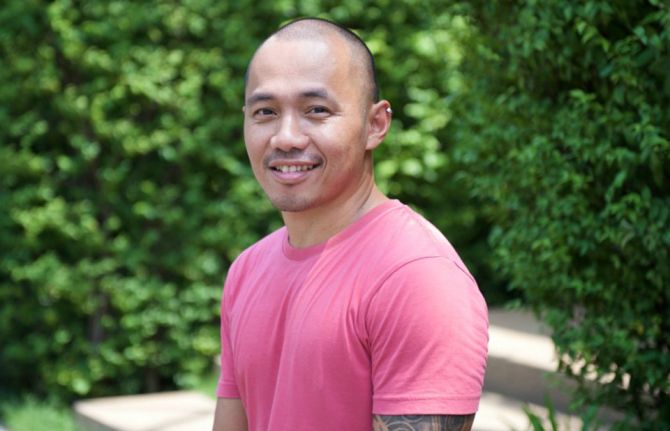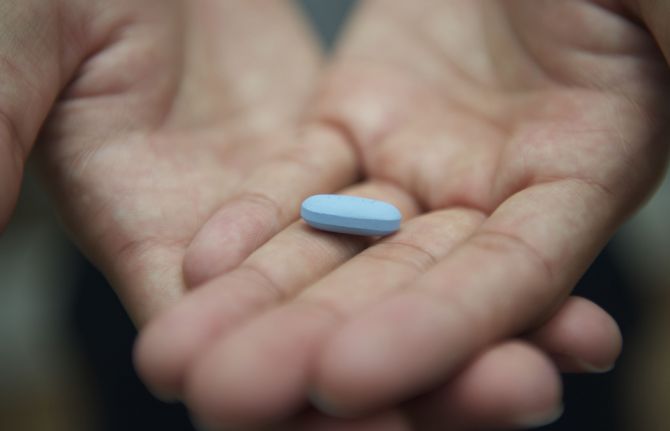



Feature Story
Countries in Asia start to roll out PrEP
02 November 2016
02 November 2016 02 November 2016The Thai Red Cross Anonymous Clinic (TRCAC) sits back from a busy street in Bangkok, Thailand. It’s a familiar place for Jonas Bagas, who visits the leafy compound regularly because he is taking pre-exposure prophylaxis (PrEP) as part of a project being piloted by the clinic.
PrEP is the use of antiretroviral medicine in the form of a daily pill to prevent people from acquiring HIV. It is demonstrated to be highly effective in preventing the transmission of HIV among people at high risk of becoming infected.
“One reason I started was because I had a sexual partner who was HIV-positive,” explains Mr Bagas, who is from the Philippines but living in Bangkok for his job with APCASO.
TRCAC started its PrEP project at the end of 2014. Users are charged US$ 1 a day for their supply of pills, along with the recommended counselling and health evaluations. PrEP is only for people who are HIV-negative, so users undergo an initial HIV test and a check for other sexually transmitted infections as well as tests to measure how the liver and kidneys are functioning. After the first month, users repeat the evaluation and then return for testing every three months.
The most common side-effects of PrEP are nausea, headache and weight loss in the first month, but no serious toxicity has been observed during trials. “I find a huge urge to sleep right after taking PrEP, but since I take it at night, that’s not a huge minus,” said Mr Bagas.
While adherence and regular HIV testing present challenges for scaling up PrEP use, researchers describe it is a breakthrough in HIV prevention. Consistent condom use remains low in Asia. In most major cities less than half of gay men and other men who have sex with men are using condoms consistently, which is too low to have an impact on stopping the AIDS epidemic. UNAIDS and the World Health Organization recommend PrEP as an additional prevention choice for people at substantial risk of HIV exposure and who are ready to have regular HIV testing.
“We have been waiting quite a long time to get an HIV prevention method that you can use in privacy and without anxiety. PrEP is the answer to that,” said Nittaya Phanuphak, Head of the Prevention Department at the Thai Red Cross AIDS Research Centre.
PrEP does not prevent other sexually transmitted infections and is not a contraceptive, so health experts say it is best integrated with other sexual and reproductive health services, including the supply of condoms.
Surveys of potential users in Asia find that there is still a low awareness of PrEP as a prevention method. “I hope that PrEP becomes available in the Philippines soon,” said Mr Bagas.
In fact, the nongovernmental organization LoveYourself is starting a pilot project for PrEP, including regular check-ups, risk reduction and adherence counselling, in two of its clinics in Manila, Philippines, in November. “We will embed PrEP education in the HIV testing process. So all those who are going through HIV testing in our clinics, which is about 60 to 100 people a day, will be given PrEP information,” says Chris Lagman, the Director of Learning and Development at LoveYourself.



